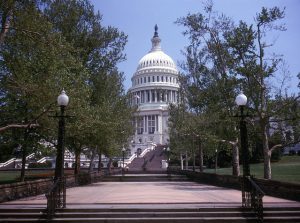California to Hike Cannabis Taxes in Shock Move
In a move that has shocked the cannabis industry, California is hiking legal marijuana business taxes. This decision comes on the heels of many licensed marijuana companies imploring the state to reduce such taxes.
But with legal storefronts now set to face cannabis taxes nearing 50 per cent beginning January 1, the move is being seen by some as another reason pot customers will choose the Golden State’s already thriving black market. Cannabis business analysts estimate that for every dollar spent in California’s legal pot market, $3 are being spent on the illicit market.
In a statement released by the California Cannabis Industry Association, members are said to be both outraged and stunned by the decision. The group believes increased cannabis business taxes will only make trading even more difficult for those operating legally, who are already fraught with heavy fees, stringent regulation, local community bans on cannabis cultivation and sales, and a flourishing black market.
Continue reading
 Cannabis Law Group's Medical Marijuana Legal Blog
Cannabis Law Group's Medical Marijuana Legal Blog





 California Vape Manufacturer, Kushy Punch, has been accused of operating both legal and illegal cannabis operations, according to state authorities. On October 3, state officials followed a tip to a warehouse in Canoga Park, where a raid turned up an illegal manufacturing operation seemingly run by the well-known state-licensed company, Kushy Punch.
California Vape Manufacturer, Kushy Punch, has been accused of operating both legal and illegal cannabis operations, according to state authorities. On October 3, state officials followed a tip to a warehouse in Canoga Park, where a raid turned up an illegal manufacturing operation seemingly run by the well-known state-licensed company, Kushy Punch.


 Marijuana supporters in California rejoiced late last month as legislation passed by the U.S. House of Representatives could afford the industry more freedom to grow. Currently, the recreational use and sale of marijuana is legal in California, along with 10 other states, and Washington D.C. But federal law continues to classify cannabis as a Schedule 1 narcotic. While it is yet to happen, this makes folks in the cannabis industry weary, as the door remains open for the federal government to prosecute against cannabis related businesses, even in states that have legalized marijuana.
Marijuana supporters in California rejoiced late last month as legislation passed by the U.S. House of Representatives could afford the industry more freedom to grow. Currently, the recreational use and sale of marijuana is legal in California, along with 10 other states, and Washington D.C. But federal law continues to classify cannabis as a Schedule 1 narcotic. While it is yet to happen, this makes folks in the cannabis industry weary, as the door remains open for the federal government to prosecute against cannabis related businesses, even in states that have legalized marijuana. Washington, where requirements for marijuana businesses are strict, yet muddled. What started as a residency restriction meant to control big outside mega corporations from putting local businesses at a disadvantage has led to corporations researching ways to exploit residency loopholes and limiting who longtime residents can bring on as partners. Now, due to unclear definition of what qualifies a person for residency, some are concerned how to prove their status.
Washington, where requirements for marijuana businesses are strict, yet muddled. What started as a residency restriction meant to control big outside mega corporations from putting local businesses at a disadvantage has led to corporations researching ways to exploit residency loopholes and limiting who longtime residents can bring on as partners. Now, due to unclear definition of what qualifies a person for residency, some are concerned how to prove their status. Agriculture is working on a system of regulations for naming craft cannabis strains. According to a report from
Agriculture is working on a system of regulations for naming craft cannabis strains. According to a report from  world’s largest marijuana market. California Growers Association, based in Northern California, is merging with Southern California Coalition out of Los Angeles to leverage their combined strength when voicing needs of the cannabis industry to political representatives, according to
world’s largest marijuana market. California Growers Association, based in Northern California, is merging with Southern California Coalition out of Los Angeles to leverage their combined strength when voicing needs of the cannabis industry to political representatives, according to  on a U.S. stock exchange by a marijuana producer. Ontario, Canada-based cannabis conglomerate Tilray went public on New York NASDAQ recently. The stock price spiked 30 percent in one day proving what we have been saying all along: cannabis is very, very good for business. According to a report from
on a U.S. stock exchange by a marijuana producer. Ontario, Canada-based cannabis conglomerate Tilray went public on New York NASDAQ recently. The stock price spiked 30 percent in one day proving what we have been saying all along: cannabis is very, very good for business. According to a report from